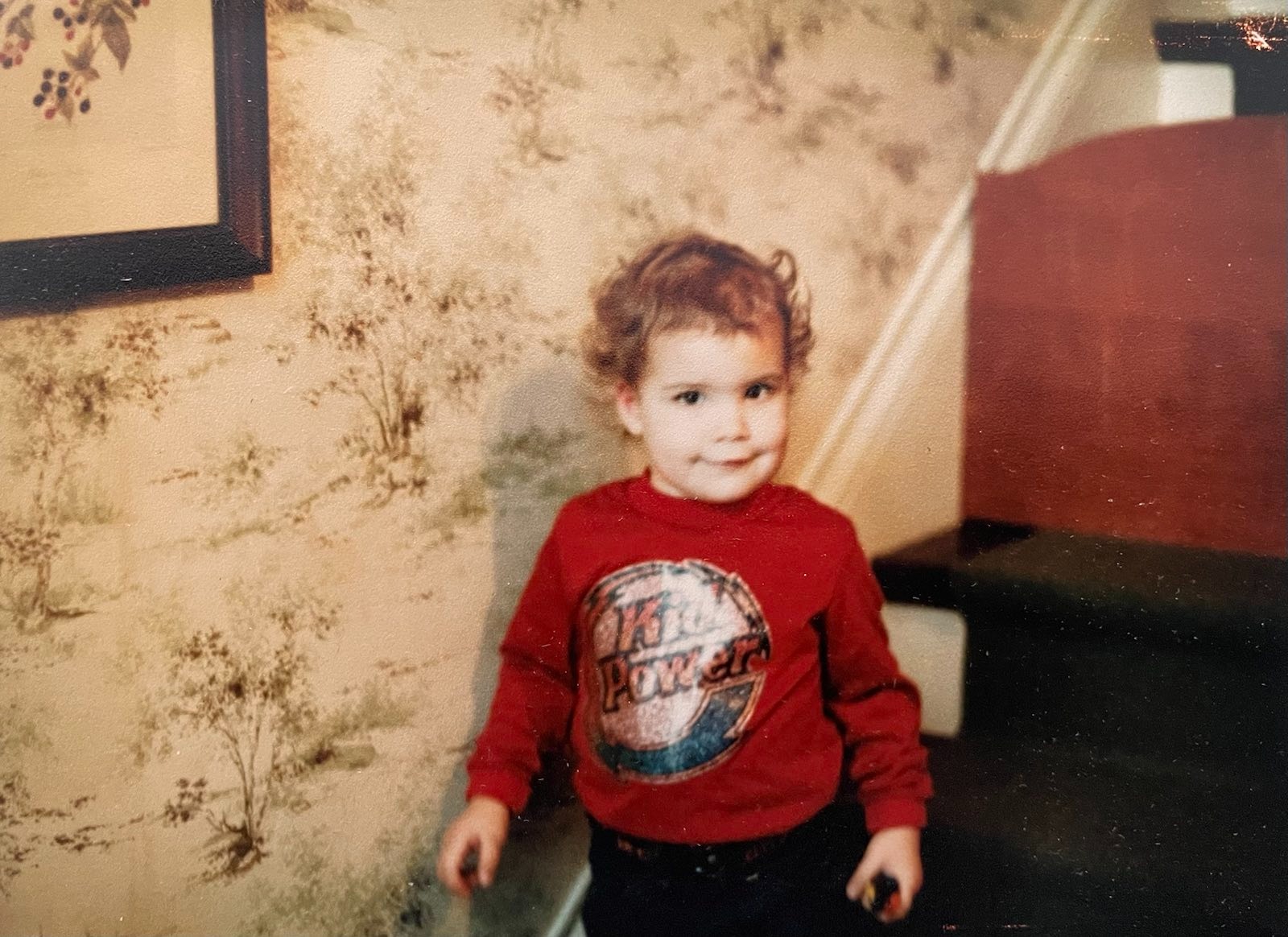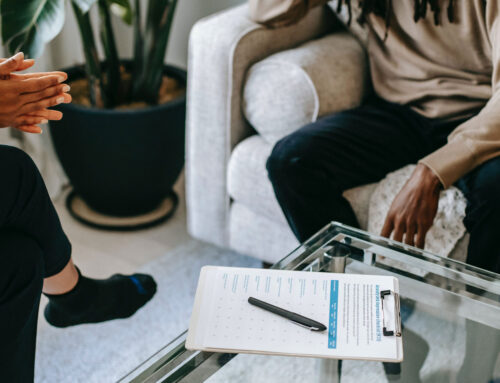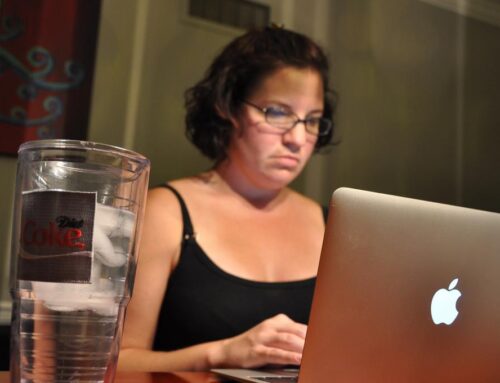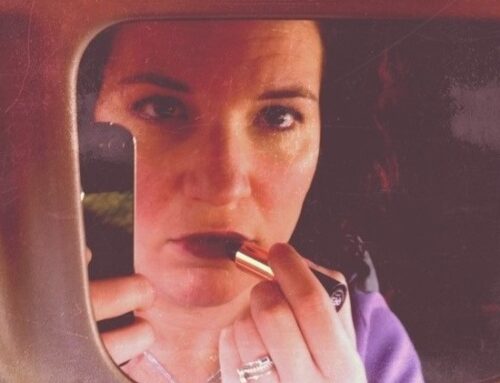Note: “Becoming” in the title here does not refer to the fact that I suddenly “became” autistic – if you’re autistic, you’ve been that way since birth. But in this case, realizing it late in life, I feel that I’m truly becoming my best self knowing about my autism.
A little over a year ago, I was driving across the country to my new home and listening to a podcast when I learned something new about myself: I might be autistic. As the guest on the show detailed her thought process for various things, I remember thinking to myself, right, yep – that’s how everyone thinks. And then the hosts of the podcast began to marvel and say that wasn’t at all how their brains worked.
Wait a second – everyone’s brains didn’t work this way? Am I…autistic?
I arrived at a friend’s house later that day and tentatively floated the idea, half-expecting her to say, “Oh Kristen – are you trying to self-diagnose with yet another new condition?” (Note: My friend would never say this – I just pictured her doing so.) Instead, she thought for a minute, then replied, “Yeah, I could see it.”
I began looking for online tests and screenings – just to start exploring the idea. The first one returned this result: You’re definitely autistic. Well, then. Most were not quite so definitive in their results, instead couching them in language that recommended talking to a provider for more official testing – but all showed that I was likely autistic.
One of my autistic characteristics is to do a deep dive into whatever my interest is at the moment, so naturally, I began reading and researching autism. With every book I read or podcast I listened to, I began to question less and to understand more – I was autistic.
What is autism like for me?
Through my research, I have learned that there is a saying in the autistic community, “Meet one autistic person, and you’ve met one autistic person.” Every person has such a unique set of characteristics that there is no real way to group all autistic people together. In my particular case, there are several things that I have identified as part of my autism:
Intense visual experience
When I say I’m picturing something, I actually mean I’m seeing a very specific thing – something I’ve seen before or can imagine in detail. I build and design websites, and before I even start to code a page, I can picture exactly how it’s going to look in my head – without some sort of guiding document often. When someone tells me to picture a beach, I am picturing the last beach I visited – it was in Florida, there was music from the 1980s playing on someone’s boom box (it was literally a boom box – possibly also from the 80s), and there was a man in a shiny gold speedo swimsuit walking around. In other words, it’s not just a generic beach, but a very specific picture.
This can also translate as empathy – I don’t just feel for you, I’m often feeling what you’re feeling because I can visualize myself in that exact experience. This gets to be very overwhelming for me at times, as I can’t just turn it off when I want to.
Social anxiety/discomfort
I’ve always struggled with what I thought to be introversion – and there is likely at least some of that. But I also really just struggle to know what to do in social situations. None of what people do in these situations is natural to me, and I am often worried about making a mistake. I’ve been masking for so long there are some things I seem to do more naturally now, but there is always an inner conversation happening in my brain where I’m trying to figure out if I should smile now or frown, nod in affirmation or hold my head still, make eye contact or look away, wait, is that too much eye contact, have I made things awkward now?
In addition to this, there are times when being around people is just plain abrasive. I used to credit this to my depression or anxiety, but honestly, it’s more sensory-related. The best way I can describe it is that my skin feels absolutely raw, and being around people feels like it would be physically painful.
Sensory meltdowns
And speaking of sensory-related issues, I occasionally have sensory meltdowns – though I previously thought these were panic attacks. During these times, I am often having very high anxiety about something, and then in addition to that, my senses are being overwhelmed, causing me to melt down – shaking, having trouble breathing, bursting into tears unexpectedly – until I can step away to gather myself with some breathing exercises. Grocery stores are one place that I’m sensitive to – I don’t cook much, so I don’t always know where to look for certain ingredients, and I’m worried that I look out of place there. In addition to that anxiety, there are bright lights, lots of choices, and often lots of people. Plus I have to worry about checking out and talking to someone. It can be a lot for me if I can’t find something I know should be there.
Intense interests
I often get very focused on a particular topic and will do a deep dive researching it for no particular reason but my own self-edification. When we moved to Utah, I watched every documentary and read several different books about Mormons – I can probably relate their history better than some folks in the church at this point. When I learned I might be autistic, I started stocking my library and have read at least a half-dozen books about it and listened to just as many podcasts. I don’t know what causes the initial interest, necessarily, only that once it’s been piqued, there’s little to stop me from learning everything I can about it.
Black and white thinking and intense need for justice
This is one my partner picked up on right away when he saw it was a characteristic – he’s always said I tend to get very set in my beliefs, and I often don’t recognize the gray area in situations. This can also often translate in me being very direct and sometimes blunt in my speaking – I get frustrated when people talk around something that is so clear to me. I’d rather get to the heart of it quickly – no need for lollygagging with me.
It also often translates to a very strong need to see justice served, and more importantly, to be the one serving it. This has resulted in more than one argument in my marriage, as my partner advocates for a more politically safe path as he continues to navigate the minefield that is higher education administration, whereas I would prefer to burn it all down. (“Dracarys,” as my friend often refers to these urges.)
To test or not to test
Though it is not uncommon for many in the autistic community to self-diagnose – it’s not hard to see when you meet the particular identifying traits, and if you don’t need treatment, who needs an official diagnosis anyways? – I am currently scheduled for testing for autism. My therapist says that I am autistic “without a doubt,” but having a test result may make it easier to write about for a larger community and to have conversations with family members and friends who have known me for a long time before I “became” autistic.
I admit, I’m a little nervous about this test – depending on the professional, they may not be as aware of how autism presents in adults and women, so the results aren’t always as certain as working with a trained therapist who understands you on a deeper level. With any luck, though, I’ll be officially diagnosed and be able to add that to my autism “credentials” for those more difficult conversations.
Either way, I feel certain that this is something about me that is true – the pieces of uncertainty I’ve felt throughout my life have clicked into place in a way they never have before. And I consider this a blessing, not a curse as some may still (erroneously) believe. Maybe the world hasn’t been built for my comfort, but I’ve always been fairly good at making my own way anyhow.
Now I can clear a path for others beside and behind me while I do it.







I can see that in you and have always known you were different, the fact that you can picture something is exactly what you mother would do when decorating a house as she could see it before doing it. Always thought that was a gift. For me I alway read a lot of self help books , such as I’m OK your OK, Quality is Free, Don’t Sweat the Small Stuff, The Seven habits of successful leaders, , I literally thought I was living a dream , A young boy from a small town couldn’t possibly do all the things I did. I was always looking for things that would validate where I was!!!